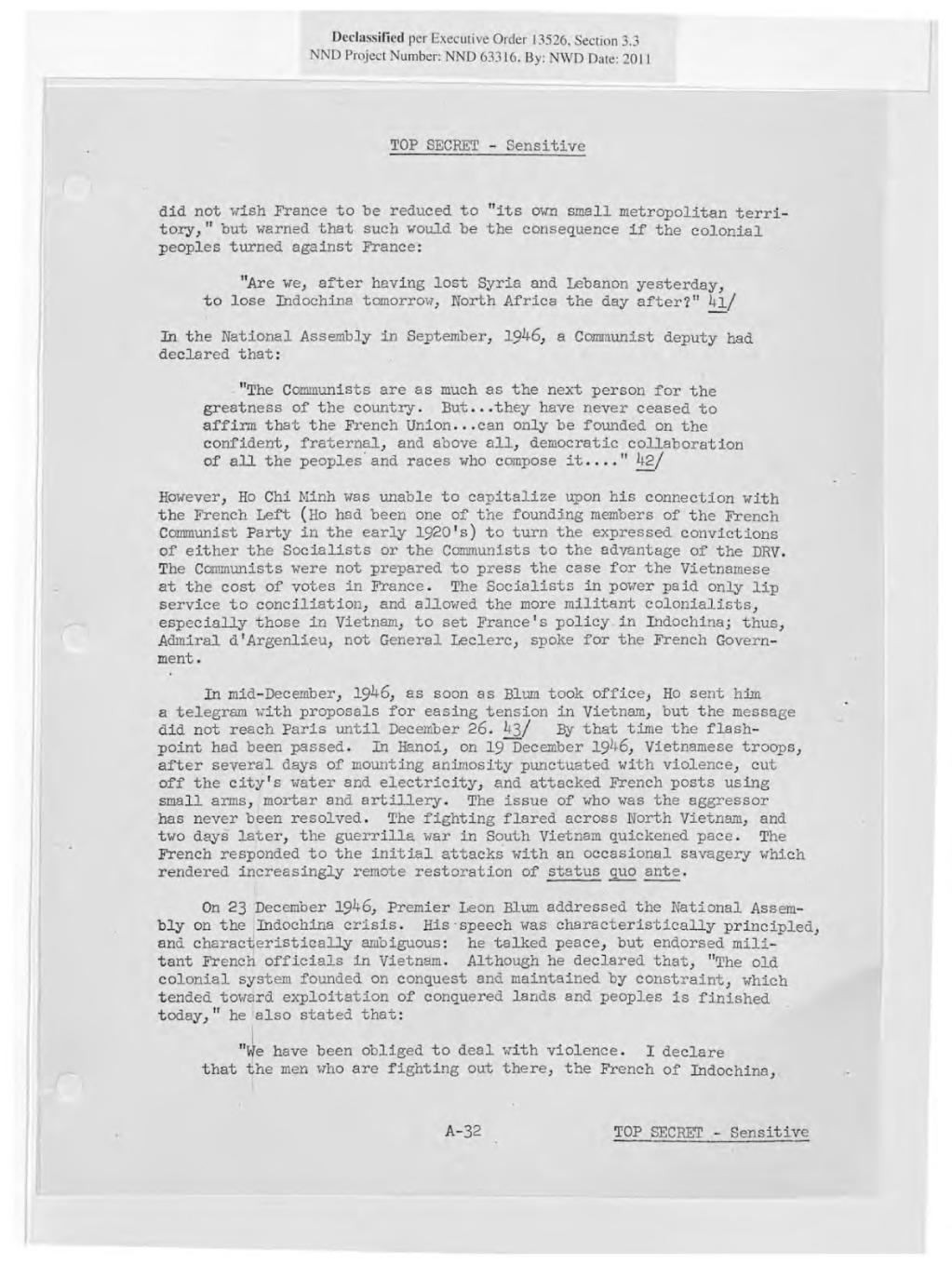Declassified per Executive Order 13526, Section 3.3
NND Project Number: NND 63316. By: NWD Date: 2011
TOP SECRET – Sensitive
did not wish France to be reduced to "its own small metropolitan territory," but warned that such would be the consequence if the colonial peoples turned against France:
- "Are we, after having lost Syria and Lebanon yesterday, to lose Indochina tomorrow, North Africa the day after?"41
In the National Assembly in September, 1946, a Communist deputy had declared that:
- "The Communists are as much as the next person for the greatness of the country. But...they have never ceased to affirm that the French Union...can only be founded on the confident, fraternal, and above all, democratic collaboration of all the peoples and races who compose it...."42
However, Ho Chi Minh was unable to capitalize upon his connection with the French Left (Ho had been one of the founding members of the French Communist Party in the early 1920's) to turn the expressed convictions of either the Socialists or the Communists to the advantage of the DRV. The Communists were not prepared to press the case for the Vietnamese at the cost of votes in France. The Socialists in power paid only lip service to conciliation, and allowed the more militant colonialists, especially those in Vietnam, to set France's policy in Indochina; thus, Admiral d'Argenlieu, not General Leclerc, spoke for the French Government.
In mid-December, 1946, as soon as Blum took office, Ho sent him a telegram with proposals for easing tension in Vietnam, but the message did not reach Paris until December 26.43 By that time the flash-point had been passed. In Hanoi, on 19 December 1946, Vietnamese troops, after several days of mounting animosity punctuated with violence, cut off the city's water and electricity, and attacked French posts using small arms, mortar and artillery. The issue of who was the aggressor has never been resolved. The fighting flared across North Vietnam, and two days later, the guerrilla war in South Vietnam quickened pace. The French responded to the initial attacks with an occasional savagery which rendered increasingly remote restoration of status quo ante.
On 23 December 1946, Premier Leon Blum addressed the National Assembly on the Indochina crisis. His speech was characteristically principled, and characteristically ambiguous: he talked peace, but endorsed militant French officials in Vietnam. Although he declared that, "The old colonial system founded on conquest and maintained by constraint, which tended toward exploitation of conquered lands and peoples is finished today," he also stated that:
- "We have been obliged to deal with violence. I declare that the men who are fighting out there, the French of Indochina,
